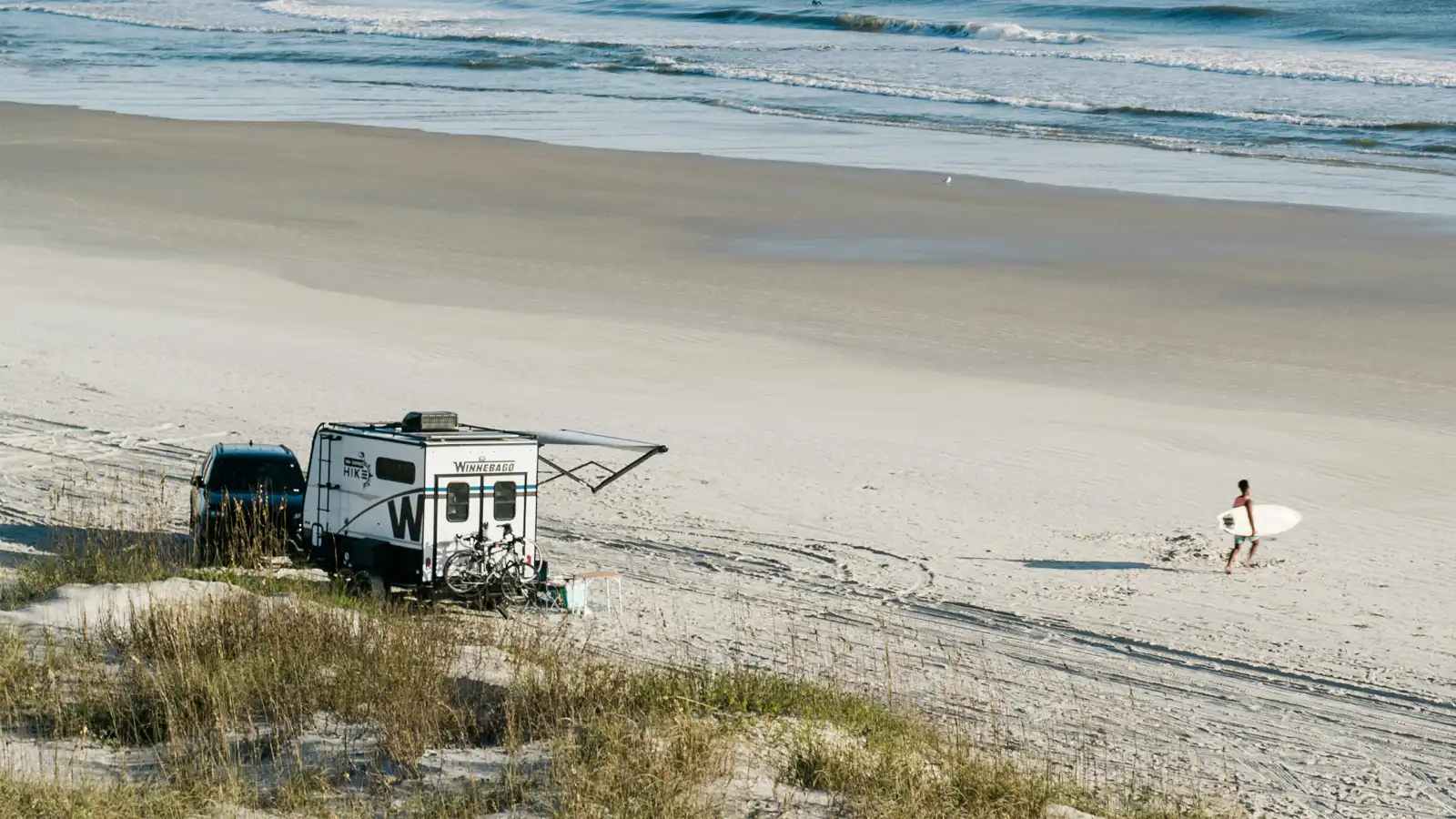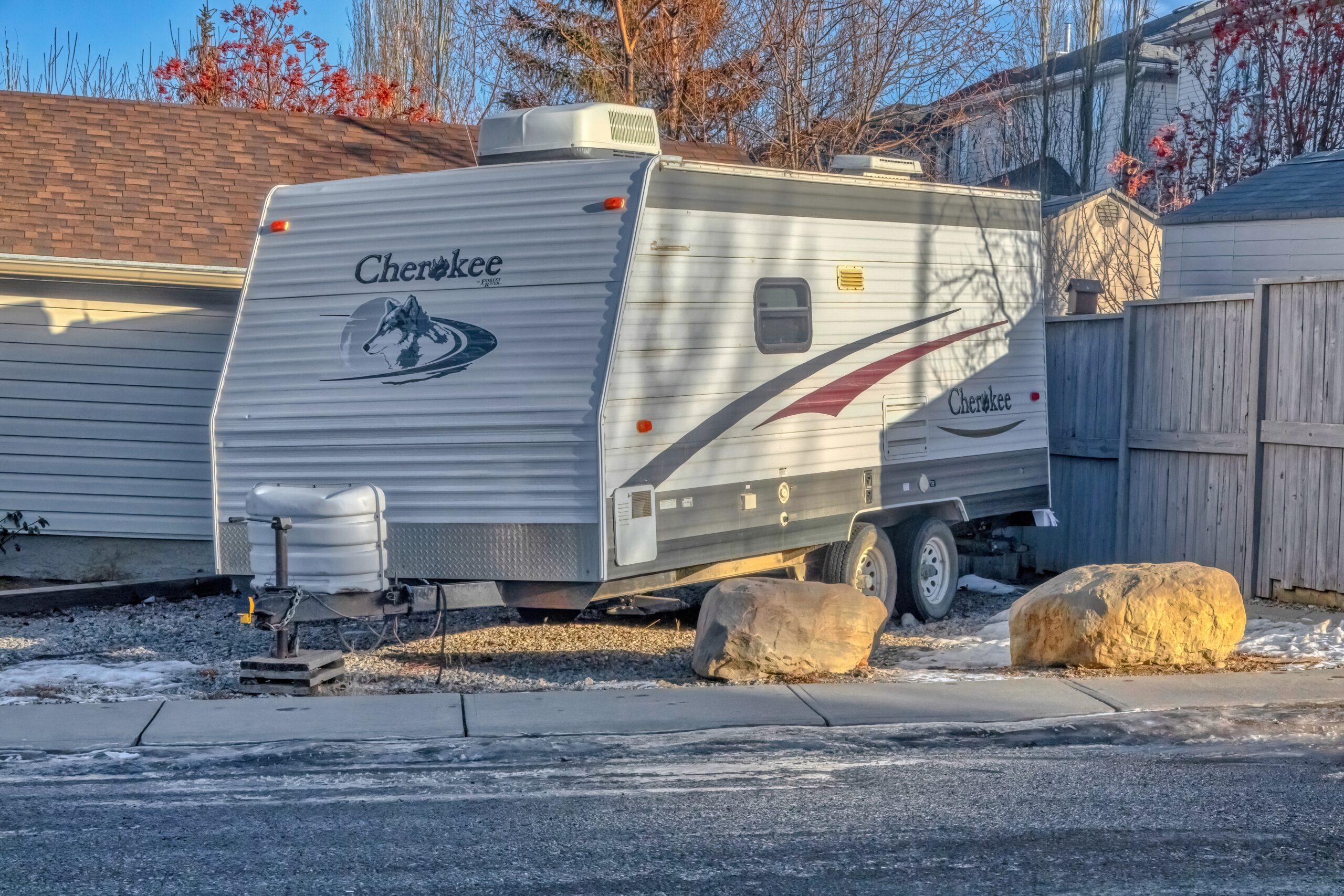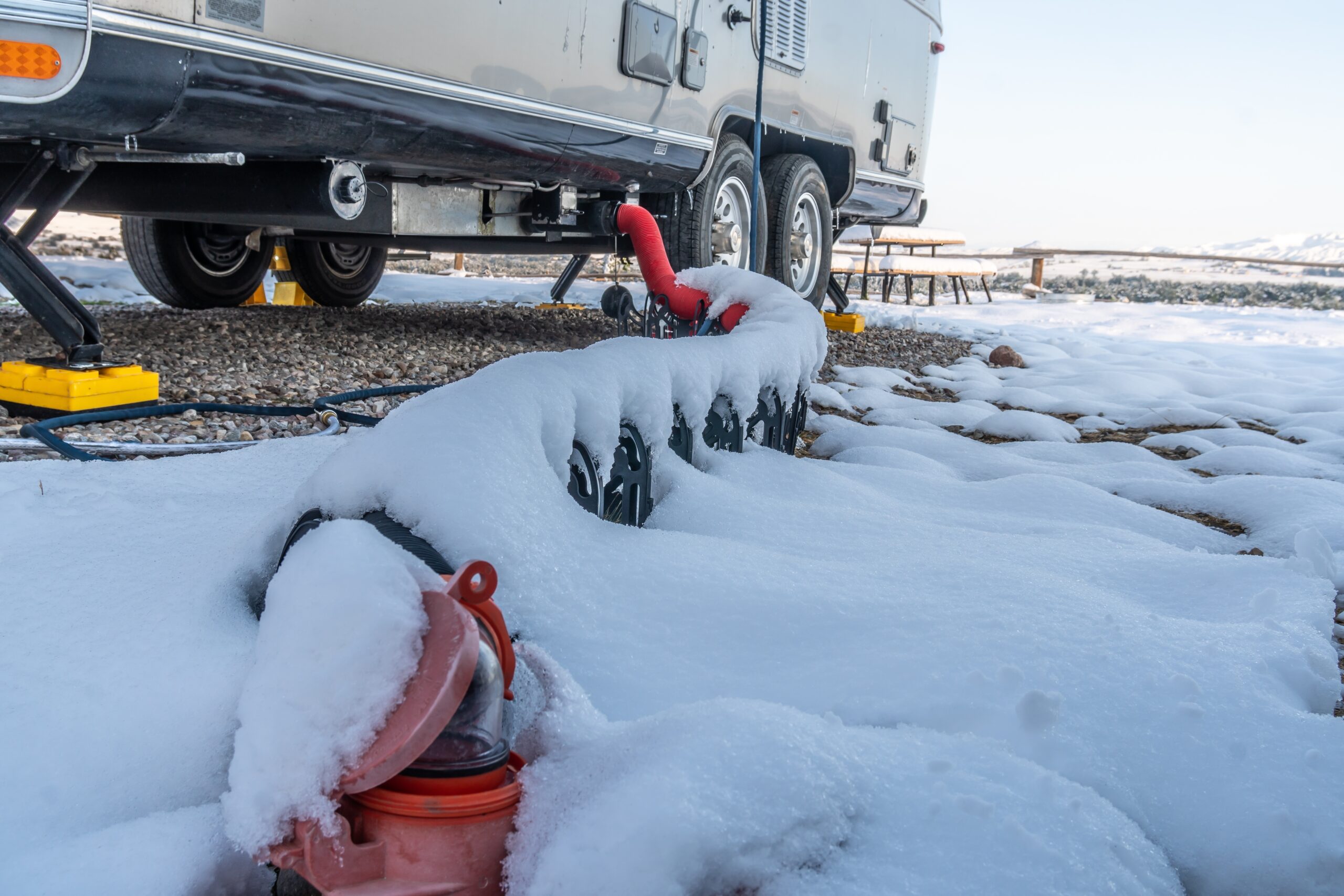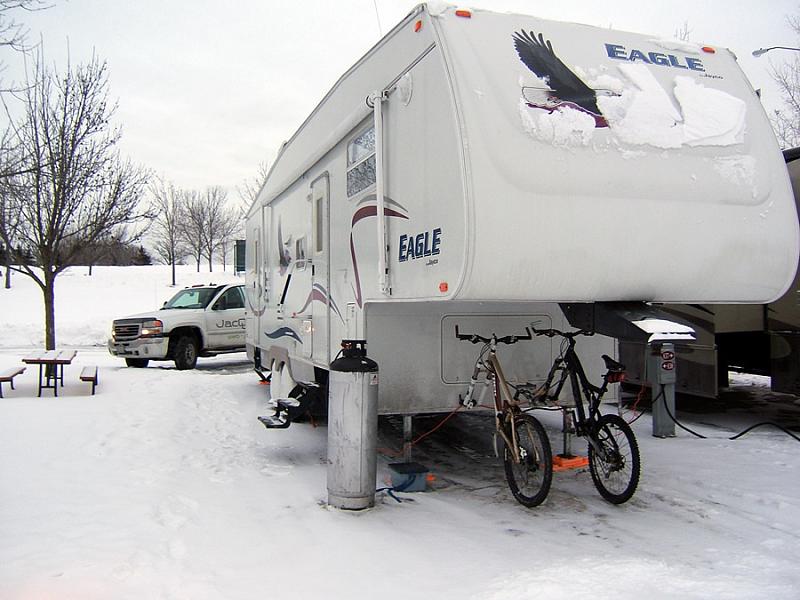
Protect Your RV Battery In Winter Storage
By early winter, most RVers that live in colder climates have taken the needed steps to protect their RV’s plumbing system from freezing.
However, RV battery winter storage is often overlooked by many when preparing their RV for the winter. If you take the proper steps to protect your lead acid batteries when putting your RV into winter hibernation, they will be ready to go camping come spring.
“The last thing you want when you start prepping your RV after winter is finding dead RV batteries to be just a hunk of junk.” Per Sheryl Bushaw
Don’ts for RV battery winter storage
- Don’t let your batteries (house and start) become discharged. Every time your batteries are drained below 50% of rated capacity, it shortens the life span of the battery due to sulfation. How do they drain while in storage not being used? Most RVs have some sort of parasitic 12-volt loads such as gas detectors, stereo clocks, circuit boards, etc. that slowly drain your battery over time.
- Don’t let a discharged battery freeze. The fluids in a discharged battery can freeze as the electrolyte inside the lead acid battery is made up of about 25 percent sulfuric acid and 75 percent water. The acid interacts chemically with lead plates to create electricity. When the electricity is depleted (discharged), water is the main remaining element making batteries more susceptible to freezing. The expansion of the fluids due to freezing will often cause the plastic housing of the battery to swell and crack, destroying the battery.
- Don’t believe that your battery will stay charged all winter even if disconnected. All batteries self discharge over time and will likely drain to less than 50% by spring if not charged occasionally over the winter.
- Don’t leave your battery(s) on a charger all winter as many chargers can damage battery(s) via overcharging.
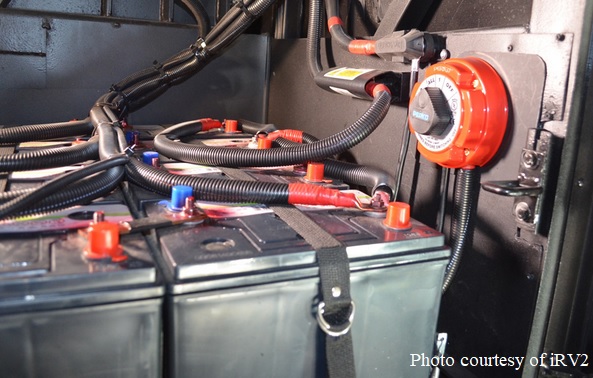
Do’s for RV battery winter storage
- Do keep your battery(s) charged via a quality 3 or 4 stage charger as a fully charged battery can withstand extreme subfreezing temperatures.
- Do clear snow off your solar panels if they are the primary charging source.
- Do use a battery kill switch or disconnect them to keep parasitic loads from draining your batteries. Charge batteries as needed.
- Do remove the batteries from your RV and store them in your garage (cool, but not subject to freezing) if you are unable to keep them charged in your RV. Charge as needed.
- Do check the cells to assure they are at appropriate levels. Fill with distilled water if needed.
Here is a short video explaining the importance of RV battery storage and how the owner learned the hard way:
RV battery winter storage is just as important as protecting your RV’s plumbing system during the freezing months, so be sure to include it as part of your annual winterizing process. You will be glad you did.
Track your RV maintenance
Keep track of all your RV maintenance with an online tool such as RV LIFE Maintenance. Not only can you keep all your maintenance records and documents in one place, you’ll receive timely reminders via email when maintenance is due and potentially avoid a costly repair or serious accident.
For more information, check out these articles:

